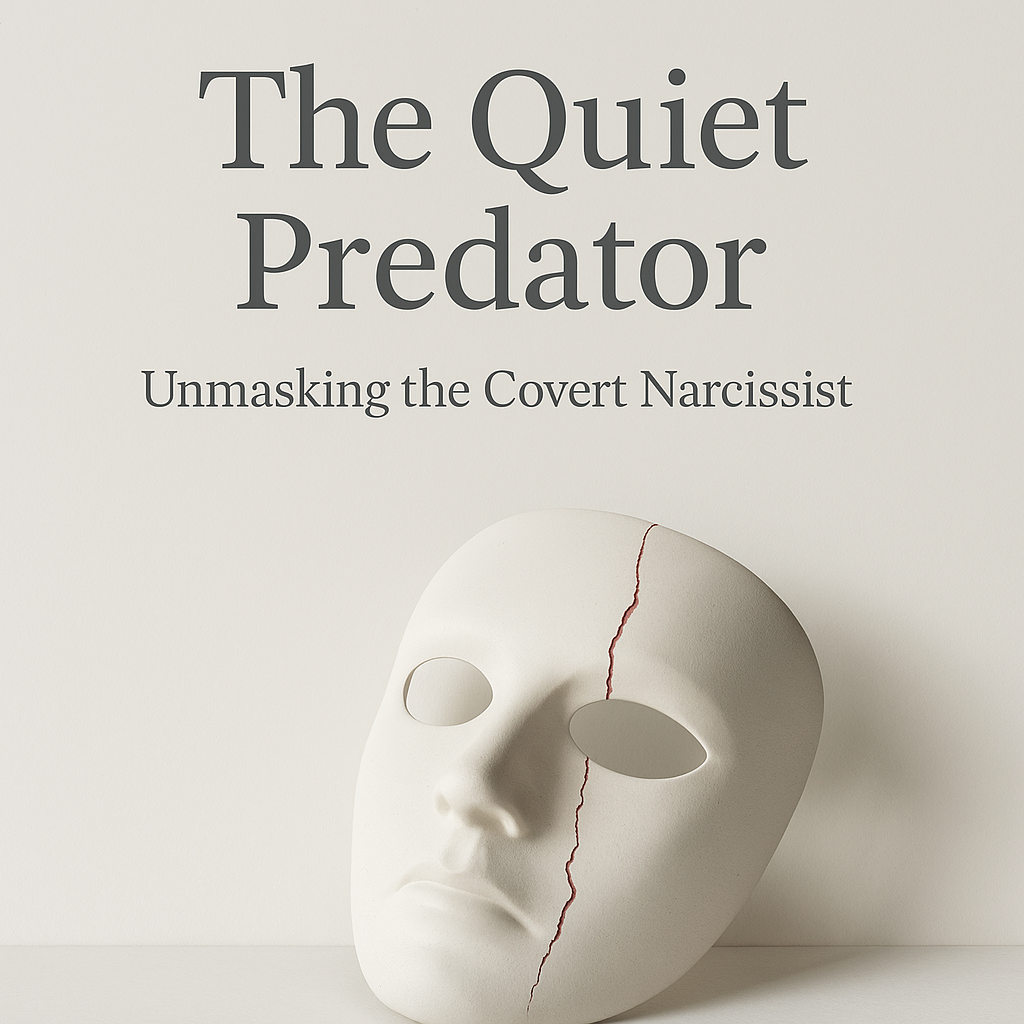
The Quiet Predator: What Is a Covert Narcissist?
Share
The Quiet Predator: What Is a Covert Narcissist?
By Festus Joe Addai
When we think of narcissists, we often picture loud, arrogant, self-obsessed individuals who dominate every room they enter. But there’s another kind — the covert narcissist — who operates silently, insidiously, and often undetected until the damage is already done.
Unlike their overt counterparts, covert narcissists don't flaunt their superiority openly. Instead, they weaponize insecurity, passive-aggression, and subtle manipulation to maintain control. Their charm is quiet, their dominance hidden behind humility, victimhood, or even acts of false generosity.
"A covert narcissist doesn’t shout their superiority from rooftops — they whisper it into your subconscious."
How to Recognize a Covert Narcissist
The early signs are dangerously easy to miss. Covert narcissists often appear shy, reserved, or even deeply wounded. They may present themselves as the 'good guy' or 'girl next door' who "never asks for much," while quietly manipulating the emotional environment around them.
Here are some common traits:
- Passive-Aggression: Subtle digs, backhanded compliments, and invisible punishment games.
- Victim Mentality: They are always the ones wronged — never responsible for harm they cause.
- Envy & Resentment: They secretly resent others' happiness, success, or freedom.
- Emotional Withdrawal: Punishing you with silence, distance, or apathy.
- Highly Sensitive to Criticism: Even gentle feedback triggers overreactions or silent revenge.
Why They're So Dangerous
Because covert narcissists don’t fit the stereotype of the classic abuser, they can maintain a façade of kindness and decency to the outside world. Behind closed doors, however, their need for control, admiration, and validation remains as ruthless as any overt narcissist — just delivered in a more poisonous, slow-drip form.
Victims often suffer deep psychological wounds, questioning their own reality, feeling guilt for daring to defend themselves, and losing trust in their instincts.
The Early Warning Signs
If you sense that someone often portrays themselves as a misunderstood victim while subtly making you feel guilty, inferior, or unstable — pay attention. Your gut feeling isn’t paranoid — it’s trying to protect you.
Trust the tension you feel, even when their words sound harmless. Silent control is still control. Manipulation disguised as humility is still manipulation.
"Not all who smile are safe. Some smile to disarm you before they devour you."
Video credit: This content was created by the original creator and is featured here as part of our curated series on covert narcissism. All rights belong to the respective owner.


